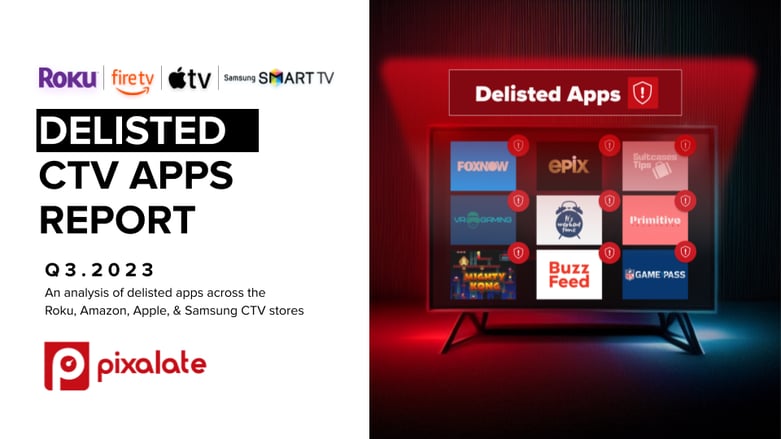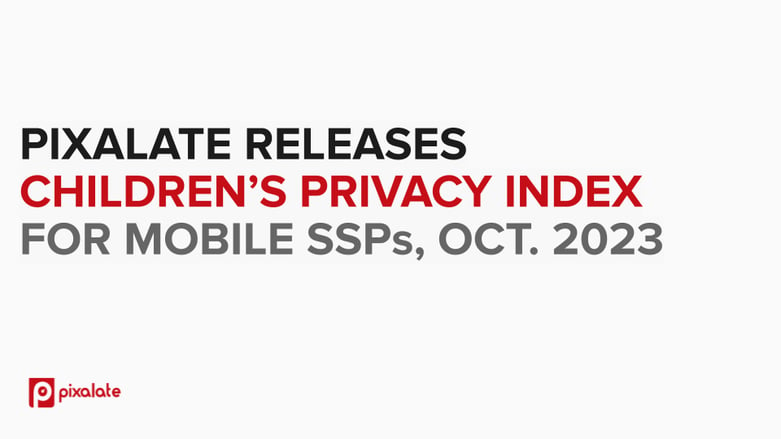
This week's review of ad fraud and privacy in the digital advertising space:

This week, we announced the launch of our “Made for Advertising” (MFA) technology to detect and block MFA websites, CTV and mobile apps. Pixalate's MFA solution rates websites, CTV and mobile apps with a high, medium, or low MFA risk; this new feature is available in Beta across the Pixalate product suite. You can find out all about the announcement in this press release and you may also check out this blog to learn more about Pixalate’s MFA capabilities.

Pixalate this week released the Q3 2023 Delisted CTV Apps Report, analyzing Q3 2023 DEFASED apps (Delisted From the App Store) - applications that are no longer available for download from Roku, Amazon Fire TV, Samsung Smart TV, and Apple TV app stores.

We released the October 2023 Children’s Privacy Index for Mobile Advertising. The monthly index benchmarks Supply-Side Platforms (SSPs) based on the percentage of ads they sell that are on apps that are likely child-directed, as assessed by Pixalate’s COPPA Methodology.

Pixalate's Trust & Safety Advisory Board published three new manual reviews this week where they assess an app’s child-directedness:
You can search Pixalate's full catalogue of reviews in our CTV and Mobile App Review Page

Google is updating its language in child and teen ads policies to provide more clarity and transparency for brands and advertisers. The changes include 'ads and content made for kids', 'ad-serving protections for children', and 'ad-serving protection for teens'. These updates aim to help brands avoid unintentional violations of rules and regulations, which can result in significant financial penalties. The revisions are being made to improve clarity and consistency with other policies.
This update comes after a study accused Google of improperly tracking children for targeted advertising, but Google denied any wrongdoing and is addressing the concerns.
Search Engine Land covered the announcement in this press release
*By entering your email address and clicking Subscribe, you are agreeing to our Terms of Use and Privacy Policy.
These Stories on Weekly Recaps
*By entering your email address and clicking Subscribe, you are agreeing to our Terms of Use and Privacy Policy.

Disclaimer: The content of this page reflects Pixalate’s opinions with respect to the factors that Pixalate believes can be useful to the digital media industry. Any proprietary data shared is grounded in Pixalate’s proprietary technology and analytics, which Pixalate is continuously evaluating and updating. Any references to outside sources should not be construed as endorsements. Pixalate’s opinions are just that - opinion, not facts or guarantees.
Per the MRC, “'Fraud' is not intended to represent fraud as defined in various laws, statutes and ordinances or as conventionally used in U.S. Court or other legal proceedings, but rather a custom definition strictly for advertising measurement purposes. Also per the MRC, “‘Invalid Traffic’ is defined generally as traffic that does not meet certain ad serving quality or completeness criteria, or otherwise does not represent legitimate ad traffic that should be included in measurement counts. Among the reasons why ad traffic may be deemed invalid is it is a result of non-human traffic (spiders, bots, etc.), or activity designed to produce fraudulent traffic.”

